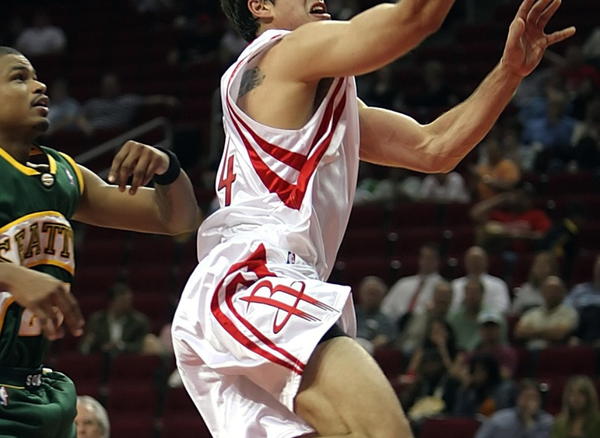In basketball, the sixth man is like the secret ingredient in your grandma's famous chili—often overlooked but absolutely essential. This player is the first substitute off the bench, ready to jump into action faster than a cat on a hot tin roof. The sixth man is not just a backup; they are a baller, bringing fresh legs and a new dynamic to the court.
The role of the sixth man is as old as the game itself, yet it remains one of the most misunderstood positions. While the starting five get the glory, the sixth man could be the savior, the glue that holds the team together when the going gets tough, ready to cut through the opposition with skill and finesse.
Origin of the Sixth Man
The concept of the sixth man dates back to the early days of basketball, when coaches realized that having a reliable substitute could turn the tide of a game. This role became more defined in the 1960s, with players like John Havlicek of the Boston Celtics setting the standard. Havlicek was known for his relentless energy and ability to change the game's momentum, making him a pioneer of the sixth man role.
Over the years, the sixth man has evolved, becoming a strategic weapon in a coach's arsenal. Teams began to recognize the value of having a player who could come off the bench and provide an instant spark. This role is not just about getting buckets. It's about making an impact, whether through defense, playmaking, or sheer hustle.
The Skills of a Sixth Man
Being a sixth man requires a unique set of skills. It's not just about being good at basketball. It's about being adaptable and ready to perform at a moment's notice. A sixth man must be versatile, able to play multiple positions and fill various roles depending on the team's needs. They are the chameleons of the court, blending in seamlessly with the starting lineup or taking charge when necessary.
In addition to versatility, a sixth man must have a team-first mentality. They must be willing to sacrifice personal glory for the good of the team, understanding that their role is to support and elevate their teammates. This selflessness is what makes the sixth man so valuable, as they are always ready to put the team's success above their own.
Famous Sixth Men in NBA History
The NBA has seen its fair share of legendary sixth men, players who have embraced the role and made it their own. Manu Ginóbili of the San Antonio Spurs is a prime example, known for his flair and ability to change the course of a game. Ginóbili's impact was so profound that he became a key figure in the Spurs' championship runs, proving that a sixth man can be just as important as a starter.
Another iconic sixth man is Lou Williams, who has won the NBA Sixth Man of the Year award multiple times. Williams is a scoring machine, capable of lighting up the scoreboard in a matter of minutes. His ability to come off the bench and provide instant offense has made him a valuable asset to every team he's played for, cementing his legacy as one of the best sixth men in history.

The Sixth Man's Impact on Team Dynamics
The presence of a strong sixth man can significantly alter team dynamics. They bring a fresh perspective and energy that can lift the entire team, especially during tough stretches. A sixth man is often the emotional leader, rallying the troops and keeping spirits high when the chips are down. Their enthusiasm is contagious, spreading through the team like wildfire and igniting a spark that can lead to victory.
Moreover, the sixth man provides a strategic advantage, allowing coaches to experiment with different lineups and tactics. This flexibility can be the difference between winning and losing, as it keeps opponents guessing and unable to settle into a rhythm. The sixth man is the wild card, the unpredictable element that can turn a game on its head.
The Future of the Sixth Man
As basketball continues to evolve, the role of the sixth man is likely to become even more important. With the game's increasing emphasis on versatility and speed, having a player who can adapt to different situations will be invaluable. The sixth man will continue to be a key component of successful teams, providing the spark and energy needed to compete at the highest level.
Sixth Man of the Year FAQ
What is the primary role of a sixth man in basketball?
The primary role of a sixth man in basketball is to provide energy and skill off the bench. They are the first substitute and are expected to make an immediate impact, whether through scoring, defense, or leadership. The sixth man is a versatile player who can adapt to different situations and fill various roles depending on the team's needs.
How does a sixth man differ from a starter?
A sixth man differs from a starter in that they begin the game on the bench and are brought in to provide a spark when needed. While starters are typically the team's best players, the sixth man is a strategic weapon used to change the game's momentum. They must be adaptable and ready to perform at a moment's notice, often playing multiple positions and filling various roles.
Can a sixth man become a starter?
Yes, a sixth man can become a starter. Many players begin their careers as sixth men, using the role to gain experience and develop their skills. As they improve and prove their value to the team, they may earn a starting position. The sixth man role is often a stepping stone to greater things, providing valuable playing time and exposure that can lead to a starting role in the future.
Summary
The sixth man in basketball is a vital role that requires versatility, adaptability, and a team-first mentality. From the NBA to college and international basketball, the sixth man has proven to be an essential part of any successful team. With famous players like Manu Ginóbili and Lou Williams setting the standard, the sixth man continues to be a game-changer, providing energy and skill off the bench. As basketball evolves, the sixth man's role will only become more important, ensuring that this unsung hero remains a key figure in the sport.









